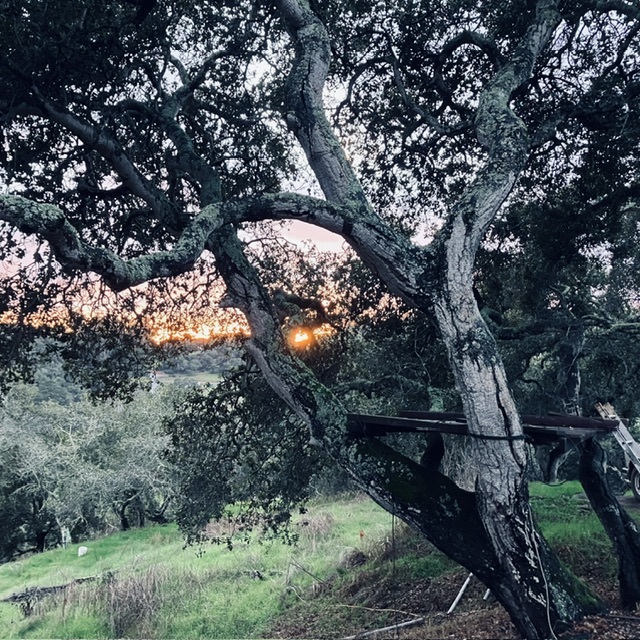The Dark Age Cometh

Leading up to and through my recent hiatus from writing I seem to have lost some participants. Wilf has disappeared completely. His blog has evaporated as well. I find that sad and puzzling.
I thought Alexandra Ross was following but I think she’s out now.
Ekaterina is still around at least! (For now!) I’m very grateful for that! Hopefully my less-than-encouraging perspective doesn’t drive her off as well!
As I mentioned in my last post, humans LOVE optimism1. Realism is far less attractive. But, realism is all that I have to offer. There has been a lot of around-the-bush-beating here as I have tried to figure out the best way to frame my thesis in the most positive light. But I haven’t been writing much anyway, and readers are thin on the ground. So at the risk of alienating anyone who is still hanging around I think I will be less circumspect.
The Dark Age Cometh
I am fascinated by the concept of a Dark Age. I think when most of us hear “Dark Age,” we think of the Early Middle Ages in Europe. But a Dark Age is a much more universal phenomenon than that. We have endured numerous Dark Ages since the dawn of civilization. Oddly, there is no article in Wikipedia discussing the concept of a Dark Age, despite numerous articles devoted to specific Dark Ages.

The Dark Age Cometh
The closest thing to an article on the “Dark Age” is the one on Societal Collapse, which seems to mostly discuss the collapse phenomenon that precedes a Dark Age. But a Dark Age itself is a period when formerly flourishing civilizations lose complexity and interconnectedness. Institutions are lost. Complex systems fail and are replaced by simpler, localized organization. Culture and knowledge suffer tremendously during these periods.
And typically, these periods last hundreds of years.
The Late Bronze Age Collapse of ~1200 B.C.E. toppled the first great civilizations of Europe (the Mycenean and Minoan civilizations).2 Most significantly, the Late Bronze Age Collapse ushered in the Greek Dark Age, which lasted from ~1100 – 750 B.C.E.
And as I wrote previously in Elysium III –
“… in the year 1500 Europe knew less than Archimedes who died in the year 212 BC…”
https://en.wikipedia.org/wiki/Archimedes
We have the collapse of the Roman Empire to thank for that. (Well, the Romans too, since they killed Archimedes).
Where Are We Now?
Today, the former period of unipolar Western dominance and the Neo-Liberal era of Globalization is disintegrating, and we are entering a new multi-polar era of reduced global interdependence.3
The upshot of all of this is that Dark Ages happen. Societies collapse for complicated reasons. The key is that complex systems run into trouble when there is insufficient surplus energy to drive them efficiently. Especially when they have been “optimized” by eliminating redundancy and siloing power into fewer organizations. Inevitably, infrastructure fails when the cost of maintenance and upkeep becomes prohibitive due to depletion of easily-accessible energy sources.4
While these have previously been regional phenomena, globalization has ensured that the next episode will have far more widespread consequences. Some regions will endure devastating effects. Others will be less impacted. The Societal Collapse that precedes a Dark Age can take a lot of time to manifest, but at a certain juncture enough of the supporting systems have failed that a tipping point is reached.
“I’m Sure We Have Plenty of Time”
There is a good historical argument to suggest that these societal collapses unfold over very long periods of time. I think there are problems with this argument. Namely –
- The authors don’t appear to realize that economic crises are really energy crises
- Energy crises will produce subsistence crises – especially in a globalized economy!
- Our capacity to wreak global destruction has expanded unthinkably
- What goes up, must come down. What goes up fast, comes down fast
- Remember that “oil production grew exponentially in the two decades 1953 to 1973, when we experienced the first “oil shock.” That oil production growth corresponded to the massive post-war economic boom, during which economic output and trade exceeded that generated in the previous 150 years.”
The diagram below is meant to illustrate the decadal and centennial process of civilization decline as posited by the authors. I argue that we are already witnessing signs of advanced breakdown. The only thing required now is subsistence crises –

The Dark Age Cometh
How long before we begin to experience such crises on a widespread scale? Well, certainly this century (barring immediate, massive shifts in consumption patterns). But never forget that as a species we are reactive, rather than proactive.
Personally, it seems very unwise for my family to live in a region that is not agriculturally self-sufficient. You can say what you like (and I do) about how hard it has become to try and live a “normal” middle-class life in California, but I have some confidence in food accessibility in a crisis – at least over medium to long-term timeframes. We cannot say the same of Africa and the Middle East. Europe relies heavily on the produce of the former Eastern Bloc (the current stability of which is an open question). Assuming it isn’t nuked to glass, Russia is one of the few places in the world with food and energy resources to sustain itself throughout any consumption crisis.

The Delusion of Abundance
I was in Costco yesterday. Anyone with the faintest perspective of human history should find it a jaw-dropping display of extravagant abundance. Disregarding tons upon tons of extraneous consumer junk, here is a vast warehouse (one of 600 in the US and 135 just in California) with shelves floor to ceiling, groaning with the weight of wealth. And not just of the precious essentials required for contented survival, but also with every manner of delicacy, pleasure and luxury. Any king or emperor throughout the vast bulk of history, right up until the mid-20th Century would be humbled and overcome with awe.
Surrounded by this bounty it is difficult to imagine that this unfathomable excess wealth might be only transitory, and best attributed to the fading inputs of cheap surplus energy and globalization. Society has conditioned us to place unquestioned faith in its ability to provide this excess in perpetuity.
Is it realistic? Sure! If you believe in infinite growth in a finite world. Of course, this would require the discovery of an as-yet-unknown (and scalable!) source of cheap energy that can replace the unthinkable energy density of fossil fuels. But don’t expect that nuclear fission (or fusion) reactors, “renewables,” or battery technology will save us. Remember that “technology” is just tools and practices that allow us to work more effectively with the natural resources available to us (resources that we have depleted terribly over the past 75 years).
So What’s the Bottom Line?
It’s easy to come off as some kind of paranoid Chicken Little expressing ideas like this. Especially so the longer it takes for a prophesied catastrophe to manifest itself. Nobody can predict how or when the sort of crisis will arrive that’s sufficient to knock global security off its axis. Maybe it takes another 75 years. But maybe it’s 10. Or maybe it’s just one. But I ask you –
- Does the deeply interconnected world of the 21st Century seem more stable and secure than it did at any previous point in your experience?
- Does it seem like our global condition is getting better, or getting worse?
- Do you believe that your society has the interest (and the means) to look out for you in a crisis?
My point to all of this is just that it is a topic that bears regular and serious consideration.
Edward Gibbon, in The History of the Decline and Fall of the Roman Empire, remarks –
The story of its ruin is simple and obvious; and, instead of inquiring why the Roman empire was destroyed, we should rather be surprised that it had subsisted so long.
Edward Gibbon. The Decline and Fall of the Roman Empire, Chapter 38 “General Observations on the Fall of the Roman Empire in the West”
- In researcher Martin Seligman’s great book Learned Optimism, he shows how optimists are more successful than pessimists (and by extension realists). In fact, his research shows that, through analysis of the speeches of US presidential candidates, the one who expresses the most optimism is almost invariably the candidate who wins the election.
But Seligman is forced to address a major weakness in the optimist’s perspective – Personalization. Optimists are biased to externalize the reasons for personal failures and internalize the reasons for their successes –
“Personalization: Optimists blame bad events on causes outside of themselves, whereas pessimists blame themselves for events that occur. Optimists are therefore generally more confident. Optimists also quickly internalize positive events while pessimists externalize them.”
Thus, by their very nature, optimists do not take responsibility for their mistakes, and take credit for the efforts of others. Pessimists do the opposite.
The unpleasant task of accurately ascribing credit and blame to both internal and external factors is left to the Realist. ↩︎ - One of my favorite blogs ever, The Stream of Time, covers the art and culture of these people with astonishing clarity and beauty, and discusses their fall as well. ↩︎
- Michael Every writes very convincingly on this topic. ↩︎
- Charles Hugh Smith explores and writes regularly on this phenomenon. ↩︎


“Today, the former period of unipolar Western dominance and the Neo-Liberal era of Globalization is disintegrating, and we are entering a new multi-polar era of reduced global interdependence. (Michael Every) writes very convincingly on this topic.”
I totally agree with you. And yes, it looks like we are entering the dark ages:(
You might appreciate Michael Every’s writing. He has a vast geopolitical perspective and a playful command of language. I think he’s Australian and currently living in Singapore. He also lived and worked in Russia and speaks Russian fluently, so he has a unique perspective on the region.